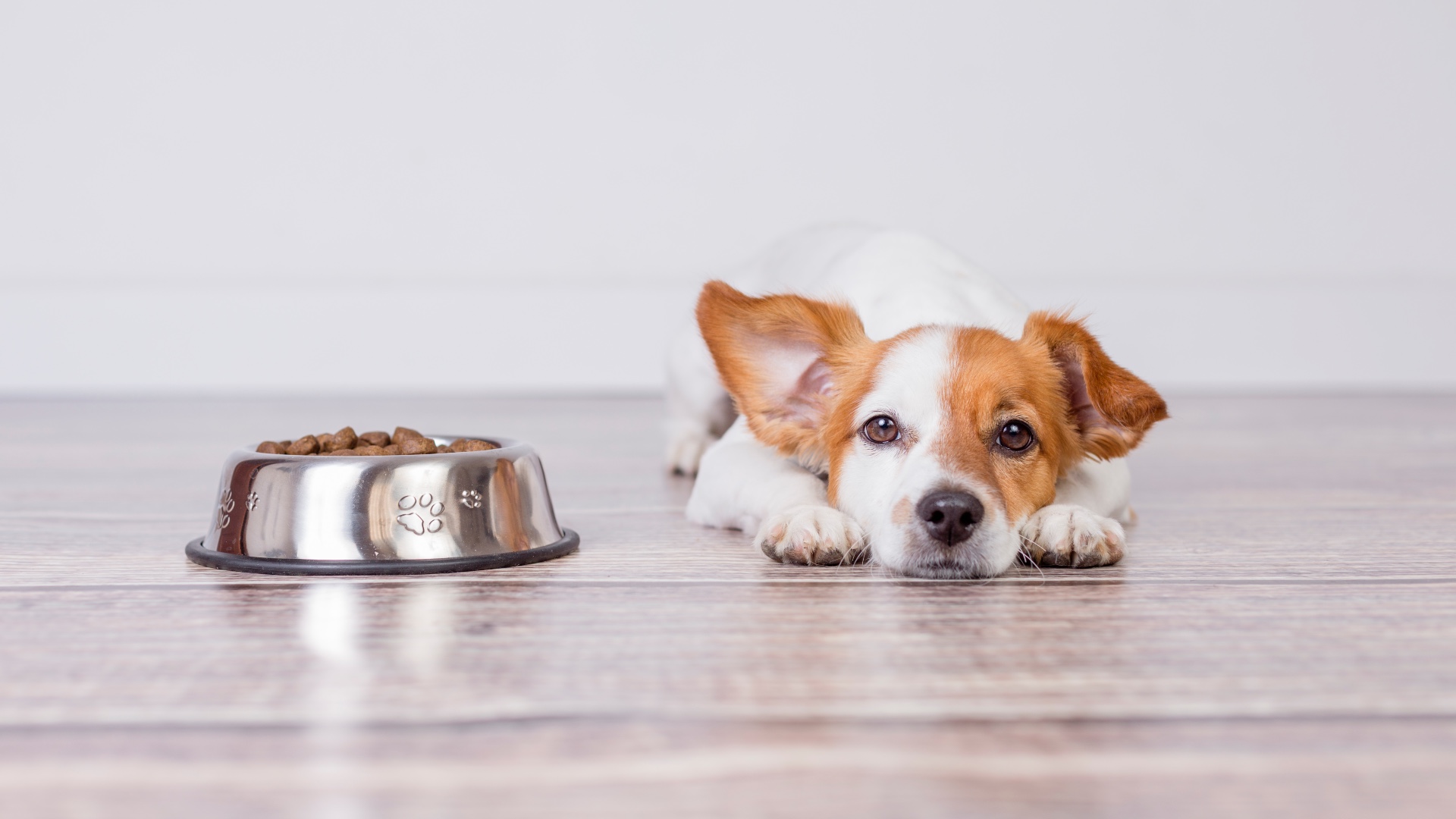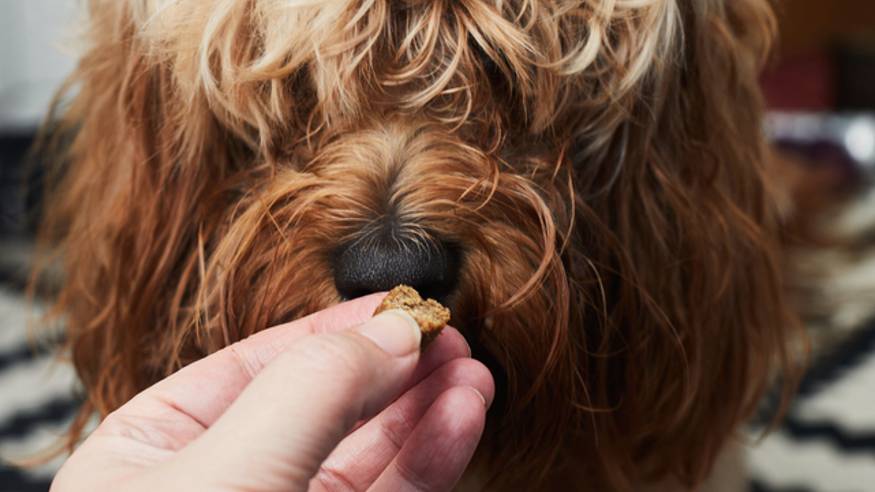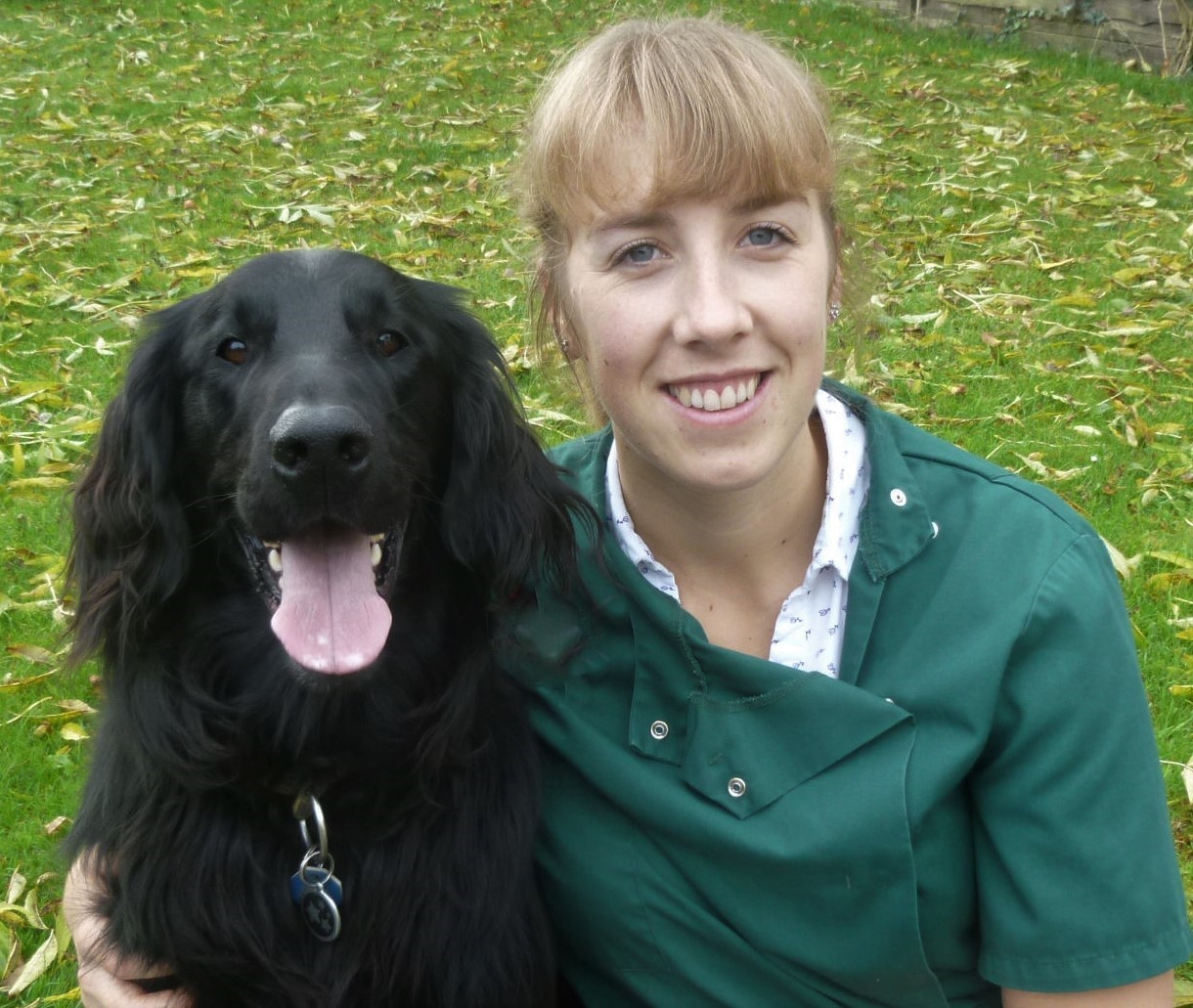Dog won’t eat kibble: A vet's guide to feeding a fussy canine
Dog won't eat kibble? Dr. Rebecca MacMillan outlines the most common reasons why and what you can do about it

Get the best advice, tips and top tech for your beloved Pets
You are now subscribed
Your newsletter sign-up was successful
What should you do if your dog won’t eat kibble? It may not sound like the biggest problem in the world because there are other ways to feed your pooch. But, since most commercial dog foods come in this form, it can be more convenient for you to encourage them to enjoy it. In many cases, it’s simply about finding a brand that they will enjoy.
After all, the best dry dog food for one dog may not be preferred by another in the same way that there will be various brands of the same foodstuffs that you would like to eat over others. In the case of kibble, it can come down to a variation in biscuit size, shape, and texture, as well as flavor. But what if you’ve tried them all and your dog still won’t eat kibble? Our expert, veterinarian Dr. Rebecca MacMillan is here to help.
Why won't my dog eat kibble?
Your dog may not be eating his kibble because he’s developed an underlying health complaint, or maybe it’s because he is a bit fussy and doesn’t like the dry food you’ve offered. So first of all, you should try to work out which it is.
Underlying health issues
If your dog has been eating kibble without fuss then suddenly stops, something is putting them off. What that could be is often a process of elimination – there are 11 things to check when your dog is not eating, according to a trained vet, for example. Many different health complaints could cause your dog to lose his appetite, including:
- Dental issues
- Stomach upsets
- Pancreatitis
- Kidney disease
- Infections
- Liver disease
- Cancer
Behavioral problems, like stress and anxiety in dogs, can also cause your dog to go off his food. Common examples include new people in the household, fireworks or a recent house move.
Your vet will start by examining your dog and may suggest further tests depending on their findings. Blood samples are often the next step and can be useful to look for causes of inappetence.
Fussy eater
Some dogs are just fussy eaters! This tends to be more common in small breeds like Shih Tzus or Yorkshire Terriers.
Get the best advice, tips and top tech for your beloved Pets
Many owners become worried that their pet has skipped a meal or two, and then start to supplement with treats like cooked chicken or bits of cheese. This is a slippery slope! Feeding him other foods will curb his appetite and he could develop a preference for this over more boring kibble, which will lead to an unbalanced diet.
Similarly, if your dog has always had one particular brand of food and then this is suddenly changed to another variety, he could turn his nose up because it isn’t his usual type.
Poor quality diet
Make sure you are feeding your dog a good quality diet that is appropriate for his size and life stage (e.g. puppy, adult or senior).
Some poorer quality diets may rely on cereals to bulk out their food and contain low amounts of meat or meat derivatives which could affect palatability. Have a look at our best dry dog food guide for inspiration.
Issues with kibble size or shape

Small dogs and puppies will require small-sized kibble and will struggle with large biscuits. Plus, if the kibble is too large for your dog, then it could be a choking hazard, especially in brachycephalic (flat-faced) breeds like Pugs.
As well as size, there can be variation in the shape of the kibble (meaty cubes, round biscuits, flat discs etc) so your dog may have a preference for one of these over another.
What kibble should I feed my dog?
Make sure you select the best dog food for your dog’s size and life stage. And if you are changing dog food make sure you gradually transition, mixing the new diet with the old over several days first.
Why has my dog stopped eating kibble but eats treats?
Your dog might be feeling poorly and can only be tempted into eating if it’s something really tasty, like the best dog treats. Other dogs just hold out for the good stuff! If you feed them lots of treats, it will curb their appetite for their main meal and lead to a nutritionally unbalanced diet.
How to tell if your dog doesn't like their food
If your dog seems reluctant to eat, picks at it or eats his meal slowly, then he may not like his food. Most dogs will eat quickly and keenly when their bowl is placed in front of them. So, if your dog is otherwise well and happy to eat other things, then he may not like the type of food that you’ve chosen for him.
Is it bad if my dog won't eat kibble?
You might be wondering ‘Is canned food or kibble best for my dog?’. Whilst neither is right or wrong, there are some definite advantages to feeding dry food over wet.
Dry food tends to be more cost-effective, easier to store and more accurate to measure out, especially for large breed dogs. There is also much more choice compared to tinned foods.
Many people mistakenly think that dry food will be better for their pets’ teeth than wet, but this isn’t usually the case. Unless your diet contains a seal of approval from the Veterinary Oral Health Council, any advantage over wet food is minimal.
To find out more about wet vs dry food check out our 'is dry dog food best?' guide.
How to encourage a dog to eat kibble

If your dog doesn’t like his kibble then you could try the following:
- Get them checked out by a vet, to ensure there is no jaw or dental pain
- Try swapping brands to an alternative good quality dog food, perhaps with a different kibble size or shape
- Try moistening the kibbles. Soaking them in a bit of warm water before feeding can help give them a softer, meatier texture which some dogs may prefer
- Make sure you give fresh biscuits each day and keep your dog’s food in an airtight container to stop it from going stale, which could make it unappetising
- Always provide plenty of fresh water, as dogs are thirstier on dry food diets
If your dog won’t eat his dry kibble, then make sure there are no underlying health reasons for this with your vet. Ultimately though, it’s ok if your dog wants to stick to wet food, as long as it’s appropriate for his life stage and he is maintaining a healthy body weight.
Rebecca is a veterinary surgeon who graduated from the Royal Veterinary College in London in 2009. She enjoys medicine in particular and she is proud to have achieved a BSAVA postgraduate certificate in small animal medicine (with commendation) from Nottingham Trent University in 2021.
She has a wealth of experience in first opinion small animal practice, having done a mixture of day-to-day routine work, on-call emergency duties and managerial roles since 2009.
She writes on various feline and canine topics for the Veterinary Content Company and a freelance basis, including behavior, nutrition, and health. Outside of work and writing she enjoys walking her own dog, spending time with her young family and baking!

